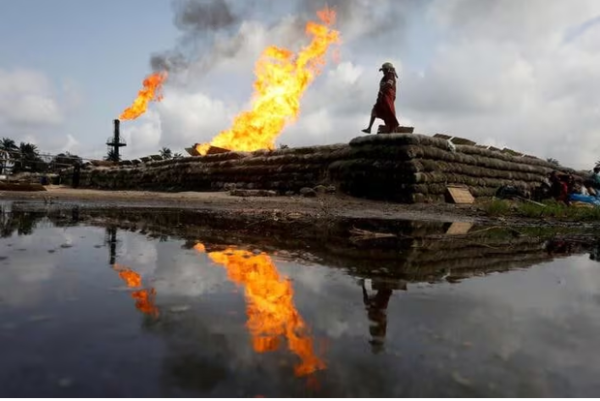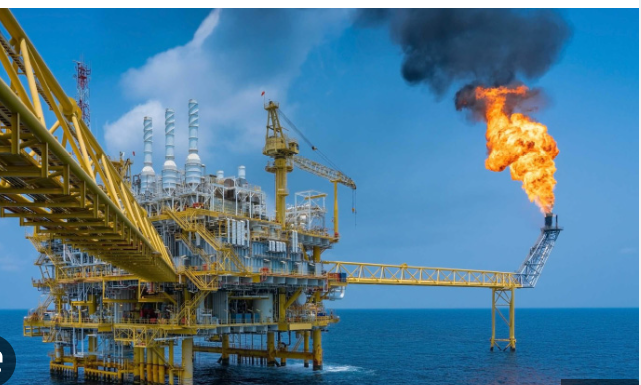In this article we will be looking at How Chinese And Nigerian Energy Firms Sign $1 Billion Gas Flaring Deal and the Benefits of this deal.
In the first half of 2023, oil and gas companies in the country flared 138.7 million metric standard cubic feet of gas. This represents approximately a 10% increase from the 126.1 million standard cubic feet (SCF) of gas flared in the first half of 2022. This led to the emission of 7.4 million tonnes of carbon dioxide (CO2), valued at a rate of US$485.3 million. When converted, this amounts to a loss equivalent to N373 billion using the August 2023 rate. In comparison, during the first half of 2022, 6.7 million tonnes of CO2 were emitted, incurring a cost of US$441.2 million, resulting in a loss equivalent to N338 billion.
Read On: Nigeria and Compressed Natural Gas Powered Vehicles

Chinese And Nigerian Energy Firms Sign $1 Billion Gas Flaring Deal
A Nigerian energy corporation, NIGUS International, has entered into a $1 billion agreement with Beijing Zhogmin Xinjunlong New Energy Technology Corporation Ltd., a Chinese enterprise, to finance and promote gas flaring solutions in Nigeria. According to the News Agency of Nigeria, President Bola Tinubu issued a national directive that led to the signing of this agreement In January 2024 in Abuja. This historic agreement would bring Nigeria into the global community of green, sustainable energy producers and put a stop to gas flaring.
Read: Gas Commercialization/ Processing Plant in Nigeria
The Benefits of this deal.
During the agreement signing, the Chief Executive Officer and Chairman of NIGUS, HRH Malik Ado Ibrahim, emphasized that the collaboration with the Chinese company is focused on integrating its cutting-edge technology to convert flared gas for commercial usage. Among other developments, this new technology is prepared to generate Gas-to-Liquid products such as synthetic diesel to improve the energy mix, Liquefied Natural Gas for export, and Liquefied Petroleum Gas (cooking gas). Utilizing gas-to-liquid (GTL) technology, natural gas—the most environmentally friendly fossil fuel—can be transformed into premium liquid fuels like diesel, jet fuel, and petrol.
In this joint venture, NIGUS, a renewable energy provider, will work with a technological partner to help Nigeria transition to a clean climate economy and put its current energy waste to good use by producing cheaper electricity. It would appear that we are not adding to the carbon footprint; in fact, we flare a significant amount of gas, and almost 90% of our Nigerian production is flared rather than used. In a joint effort with China, we are bringing to play cutting-edge technologies that will produce cheaper energy while simultaneously creating prosperity and achieving carbon neutrality. The project’s goal is to show that the president can use flared gas, and this technology will make that a reality.
Read: Liquefied Natural Gas Terminal in Nigeria
With the help of the GTL, we can transform the gas into liquid LNG. The ability to embed technology where it is needed, rather than incurring additional infrastructure expenses, is the paradigm shift, he explained. He elaborated on how the packaging would help Nigeria’s economy grow and thrive by creating jobs. Global green money could be available to Nigeria if the country can successfully promote this technology. The joint ventures would be able to access the kind of cash that Mr. President will make available for Nigeria, according to our carbon footprint and neutrality profile, he said.
The CEO of Beijing Zhogmin Xinjunlong New Energy Technology Company Ltd., Yung Ruming, expressed the company’s readiness for the collaboration, stating that their technical staff and tools would be assembled to complete the project. Ruming thanked the Federal Government for entrusting the enterprise with this chance and emphasized Nigeria and China’s long-standing strong relationship. He emphasized that the project would help the Nigerian people significantly.

